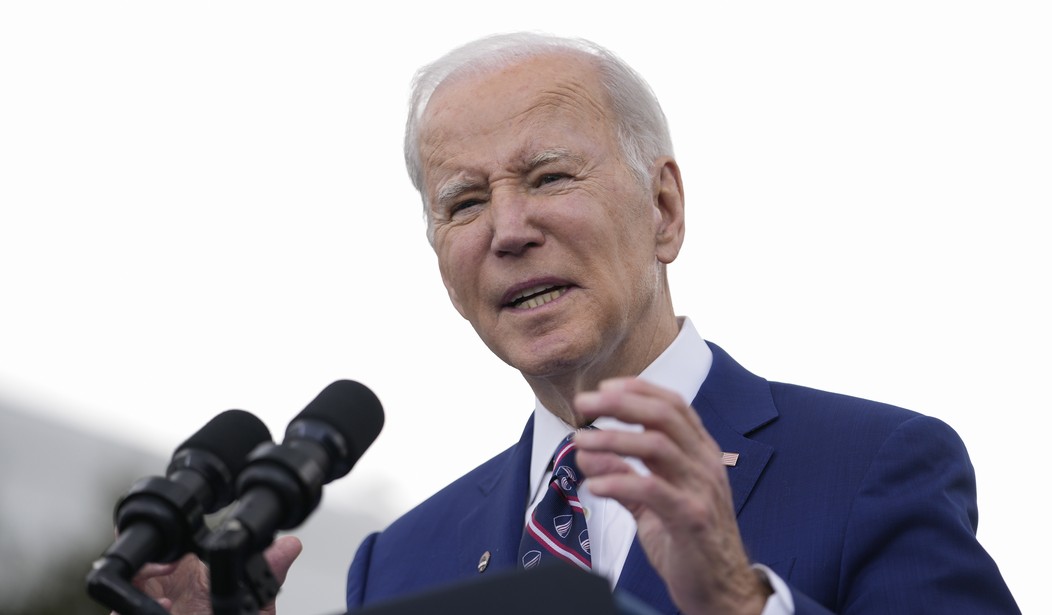President Biden claims that his just-released budget proposal would help keep Medicare solvent for another 25 years. But he's playing a shell game. The proposal would shore up Medicare's hospital trust fund -- but only by slashing Medicare's drug coverage to the bone.
The proposal would hurt seniors by jeopardizing their access to cutting-edge new medicines and doubling down on the innovation-killing drug price controls in last year's Inflation Reduction Act.
The drug provisions in the new budget would slash Medicare by an estimated $200 billion over the next decade. Democrats try to brand these reductions as "savings" targeting drugmakers rather than cuts. But the simple fact is that if Congress passes the Biden budget, the federal government will spend $200 billion less on Medicare than it otherwise would have.
That's a cut, by any definition. And it's worth recalling that back in 2017, Democrats were quick to accuse Republicans of trying to cut Medicare when their tax cut plan projected a slight reduction in Medicare spending over a decade. Now Democrats are trying to change the definition of a cut.
The $200 billion in supposed savings would go straight to the Hospital Insurance Trust Fund, which is set to become insolvent by 2028. But those savings would come from reducing spending on two other, equally important Medicare programs: Part B and Part D, which cover medicines dispensed in outpatient clinics and doctor's offices, and those dispensed at pharmacies, respectively.
These new price caps would be in addition to those already included in the Inflation Reduction Act, which imposed price controls and slashed future Medicare spending by $281 billion over the next decade to help fund progressive priorities like electric vehicle subsidies and wind farms.
Recommended
Price controls will seriously jeopardize seniors' access to the medications they need, both in the short-term and over the coming decades.
In the short term, the price controls would institute de facto reimbursement cuts for the countless doctor's offices and clinics that treat the tens of millions of seniors enrolled in Medicare Part B. Currently, those providers are reimbursed Part B drugs' "average sales price" plus a 6% markup to help cover the costs of administration. For instance, a clinic that administers a $10,000 chemotherapy course would be reimbursed $10,600.
Last year, Democrats upended this reimbursement system. Instead of being reimbursed 106% of average sales price, Part B providers will only receive 106% of a medicine's "maximum fair price" -- which refers to a drug's much lower cost after price controls kick in.
Precisely how much providers stand to lose because of this change isn't clear yet. One analysis of the IRA's precursor bill calculated that payments to providers under Part B would drop by 40%. Adding to the list of drugs subject to price controls, as the new budget would do, would surely lead to an even steeper revenue cut for clinics administering lifesaving medicines.
A precipitous drop in Part B reimbursements could force certain clinics to cut staff, leading to longer wait times and care rationing. Others might cease stocking certain Part B drugs, or stop accepting Medicare patients altogether. Some clinics could even go out of business.
These devastating consequences would leave many vulnerable seniors high and dry.
Of course, government price setting hurts seniors in the long term too. Capping the prices of medicines leads to dramatic reductions in cutting-edge biopharmaceutical R&D. An analysis of a bill similar to the IRA found that price controls would lead to 135 fewer new drug approvals through 2039. It's not hard to imagine those lost medicines including breakthrough treatments for heart disease, cancer, and Alzheimer's disease.
It's common sense that strengthening and expanding the federal government's new price control authority would lead to even fewer new treatments and cures. If President Biden gets his way with the new budget, 135 lost drugs would look like a best case scenario.
President Biden sees political utility in painting Republicans as Medicare raiders. But it was President Biden, not Republicans, who presided over devastating cuts to Medicare in last year's IRA. Now, he's doubling down.
Saul Anuzis is President of 60 Plus, the American Association of Senior Citizens.
























Join the conversation as a VIP Member